Galloway Viking-age treasure hoard begins national tour
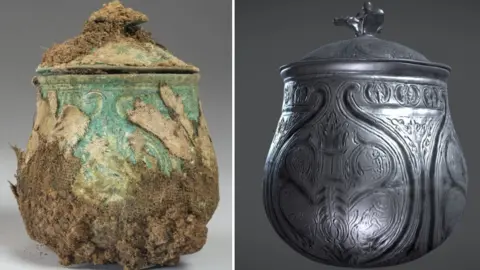 Historic Environment Scotland/NMS
Historic Environment Scotland/NMSIt has come a long way, and possibly further than anybody thought.
Ongoing research into the Galloway Viking-age hoard - unearthed in a south of Scotland field seven years ago - continues to surprise the experts.
Amid painstaking restoration and conservation work, new insights into its history keep emerging.
The public is now getting a chance to see the story so far as it goes on display in Edinburgh before heading to Kirkcudbright and Aberdeen.
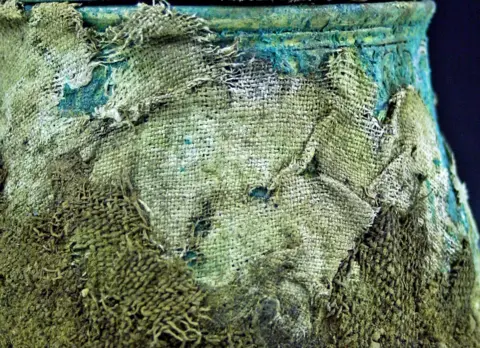 NMS
NMSThe Galloway hoard was discovered in 2014 by metal detectorist Derek McLennan from Ayrshire and was acquired by National Museums Scotland (NMS) three years later.
It has been described as "one of the most important UK archaeological finds of the century".
NMS senior curator Dr Martin Goldberg said it still had the power to surprise.
"There is something unexpected about the Galloway hoard at every turn," he said.
"It just keeps telling more and more stories."
The latest is about a lidded vessel which held some of the hoard's most precious treasures.
It was thought to come from continental Europe, but a new 3D model of the container suggests it might come from much further afield.
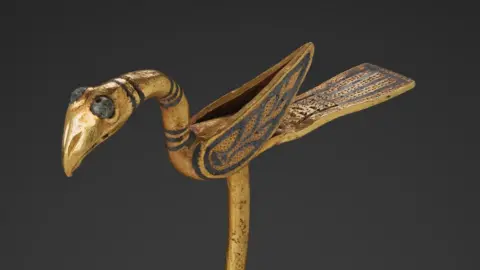 NMS
NMSResearch has also shown that the wool wrapping the vessel is older than expected and pre-dates the Viking era.
"This is only the third silver-gilt and decorated vessel to be found as part of a Viking-age hoard in the UK, and so we might have expected it to be like the other two," said Dr Goldberg.
"However, the 3D model reveals that the vessel is not from the Carolingian (Holy Roman) Empire of continental Europe as we'd expected based on other similar examples.
"Instead, the decoration and design show leopards, tigers and Zoroastrian religious symbols, all of which suggest that it is a piece of central Asian metalwork from halfway round the known world."
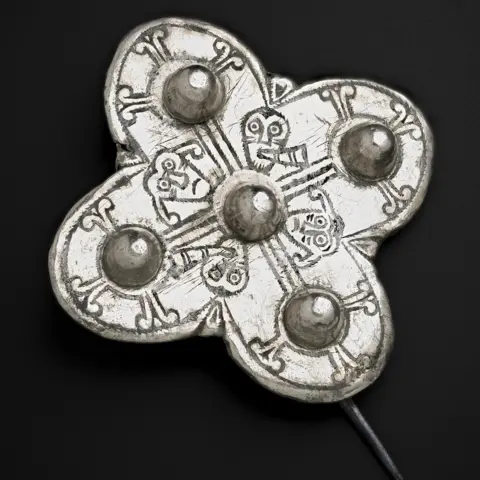 NMS
NMSRadiocarbon dating of the wool wrapping the vessel has been dated to between 680 and 780AD.
"So, the vessel is from beyond Europe, potentially thousands of miles away, and the wool wrapping it pre-dates the Viking age, being more than 100 or maybe even 200 years old by the time it was buried," said Dr Goldberg.
The model will be part of the exhibition while the real vessel is kept in controlled storage for preservation and research.
NMS director Dr Chris Breward said he was "excited" to put the hoard on display.
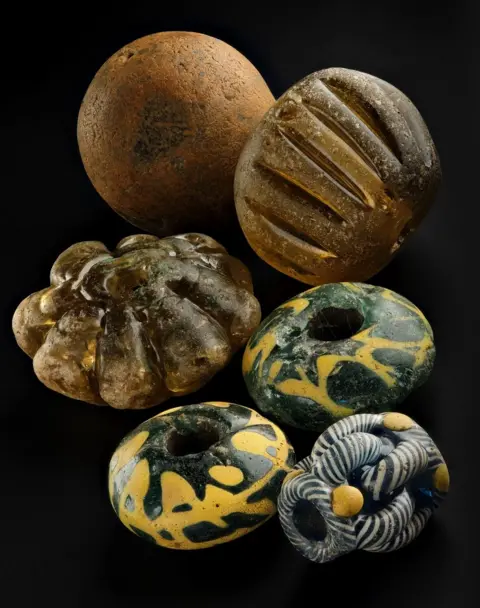 NMS
NMSIt will be at the National Museum of Scotland in Edinburgh from 29 May until 12 September, before going to Kirkcudbright Galleries from 9 October to 10 July 2022 and Aberdeen Art Gallery from 30 July to 23 October 2022.
Artefact conservator Dr Mary Davis said the hoard treasures had presented a "wide range of conservation challenges".
"The conservation and the research work so far have really gone hand in hand, revealing fantastic details on individual objects which have enabled us to start piecing together the story of the hoard," she said.
"I'm pleased that the exhibition conveys a real sense of that process of discovery."
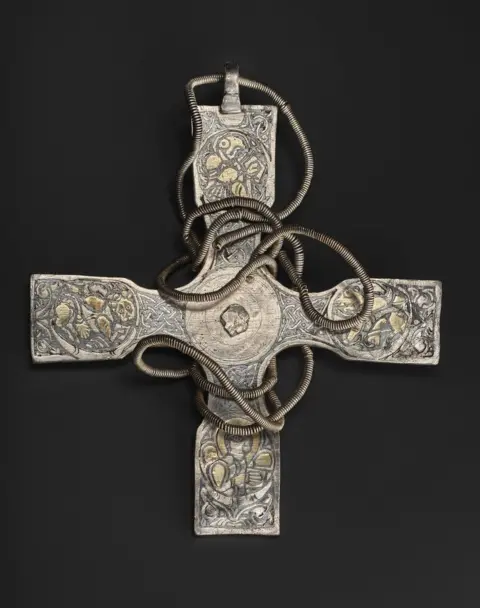 NMS
NMSThe exhibition itself takes visitors through the different layers of items exactly as they were uncovered in southern Scotland.
Research is continuing into what more it can tell us about life in the area at the time and who the hoard might have belonged to.
Whatever the answers, the public will get a chance to see for itself one of Scotland's most significant archaeological finds over the next 18 months or so.
The journey made by the Galloway hoard is not over just yet.
All images are copyrighted.
